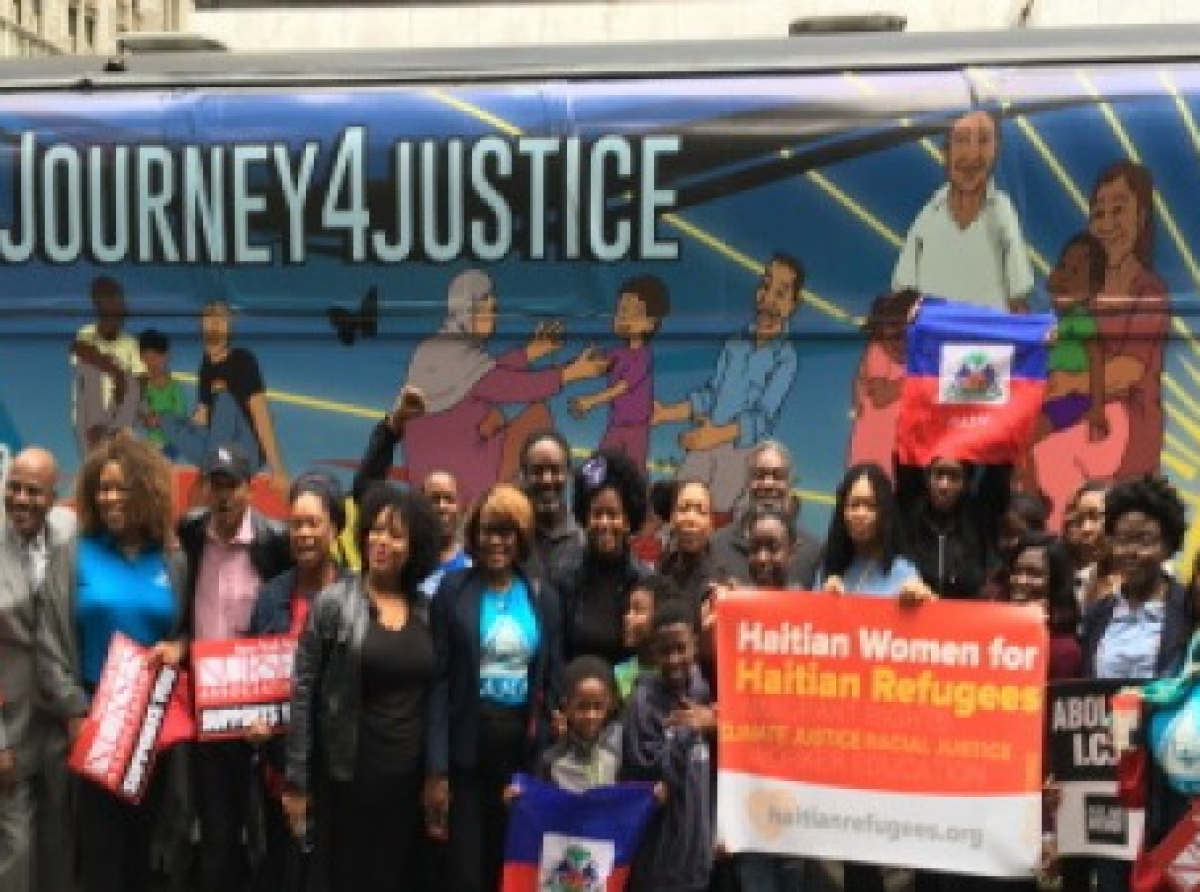Haitian Women’s Group Welcomes Extension of TPS

NEW YORK, New York – The New York-based Haitian Women for Haitian Refugees (HWHR) on Monday welcomed the Joe Biden administration’s decision to re-designate Temporary Protective Status (TPS) to over 100,000 undocumented Haitians living in the United States.
“Members of Haitian Women for Haitian Refugees joined the National TPS Alliance in 2017 to protect TPS and vow to fight for a permanent solution for TPS holders from all countries that have been granted the status,” Ninaj Raoul, HWHR’s Executive Director, told the Caribbean Media Corporation (CMC).
“Our members will continue to push forward together with our allies from all countries granted TPS and their fellow dreamers who are DACA (Deferred Action for Childhood Arrivals) recipients, until the passage of the Dream and Promise ACT, which will win permanent residency for all TPS holders and DACA recipients,” she added.
Last Saturday, the Biden administration announced a new 18-month designation of Haiti for TPS.
Secretary of US Homeland Security Alejandro N. Mayorkas said that the new TPS designation enables Haitian nationals – and individuals without nationality who last resided in Haiti – currently residing in the United States, as of May 21, 2021, to file initial applications for TPS, “so long as they meet eligibility requirements.
“Haiti is currently experiencing serious security concerns, social unrest, an increase in human rights abuses, crippling poverty and lack of basic resources, which are exacerbated by the COVID-19 pandemic,” Mayorkas said in a statement.
“After careful consideration, we determined that we must do what we can to support Haitian nationals in the United States until conditions in Haiti improve so they may safely return home,” he added.
Raoul noted that, while on his campaign presidential campaign trail in 2020, Biden “made several promises to the Haitian community”
She said that among them was “re-instating Temporary Protective Status for Haitian nationals living in the US, a status that was wrongfully terminated by the Trump administration.”
Raoul noted that TPS for Haitians was originally granted by the Obama administration in 2010, just days after the deadly earthquake, which devastated Haiti on January 12, 2010.
Roughly 250,000 lives were lost, many more injured, and over one million people were displaced.
“The racially-motivated decision to end TPS for Haitians, and other countries granted the status, was challenged by litigation, where several different cases were filed in US district courts,” Raoul said.
She said among these lawsuits was Ramos v. Nielson, which was filed by nine plaintiffs who ware TPS holders from El Salvador, Haiti, Nicaragua and Sudan – “the first four countries to have the TPS status terminated by Trump.”
Raoul said “HWHR fought hard in the campaign for the re-designation of TPS for Haitians,” alongside other immigrant rights organizations nationwide, including the Miami, Florida-based Family Action Network Movement (FANM) and Haitian Bridge Alliance in San Diego, California.
She said another promise that Biden made on the campaign trail was to halt deportations to Haiti during his first 100 days as president.
But Raoul said that, in the first two months of the Biden administration, “they sent 25 flights to Haiti, deporting record numbers of Haitians and causing more family separations.”
She, however, said HWHR continues to advocate for “a true halt of deportations to Haiti, where people are experiencing increased political violence.
“This re-designation of TPS allows over 100,000 Haitian immigrants to stay in the US and work to support themselves and their families here and in Haiti,” Raoul said.
The US Department of Homeland Security (DHS) said that, after consultation with interagency partners, Mayorkas decided to designate Haiti for TPS “due to extraordinary and temporary conditions in Haiti that prevent nationals from returning safely, specifically, a political crisis and human rights abuses; serious security concerns; and the COVID-19 pandemic’s exacerbation of a dire economic situation, and lack of access to food, water and healthcare.”
“The persistent effects of the 2010 earthquake have also exacerbated the severity of the extraordinary and temporary conditions in Haiti currently,” the department said.


